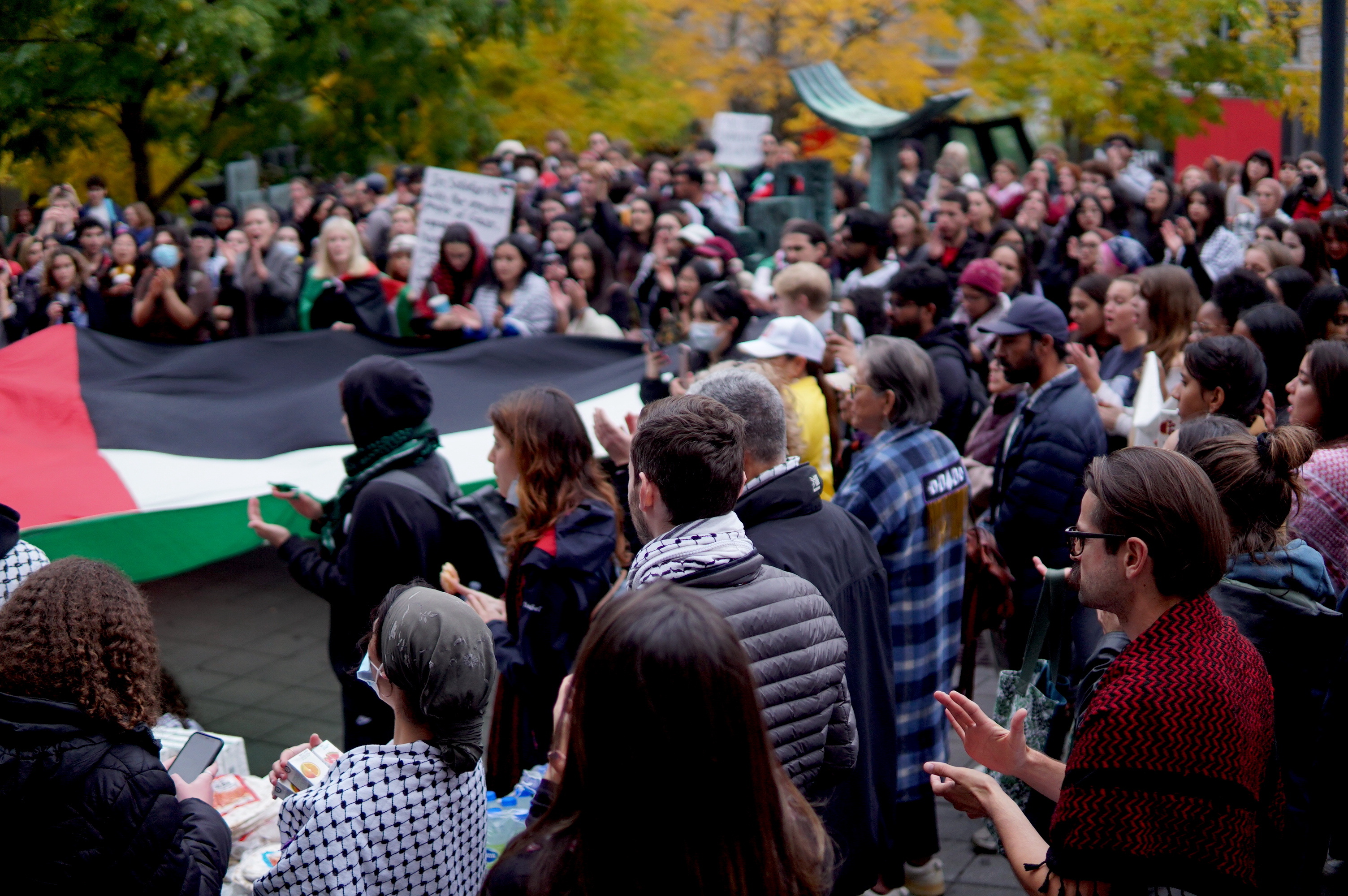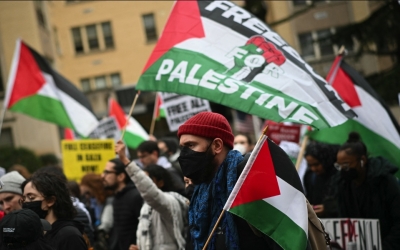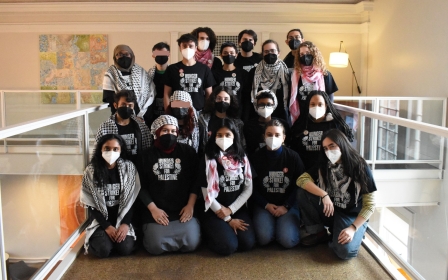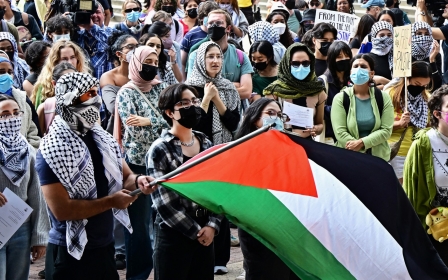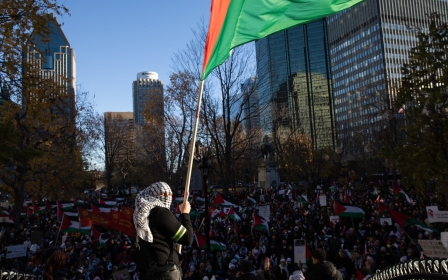War on Gaza: Canadian student hospitalised after 34 days of hunger strike for Palestine
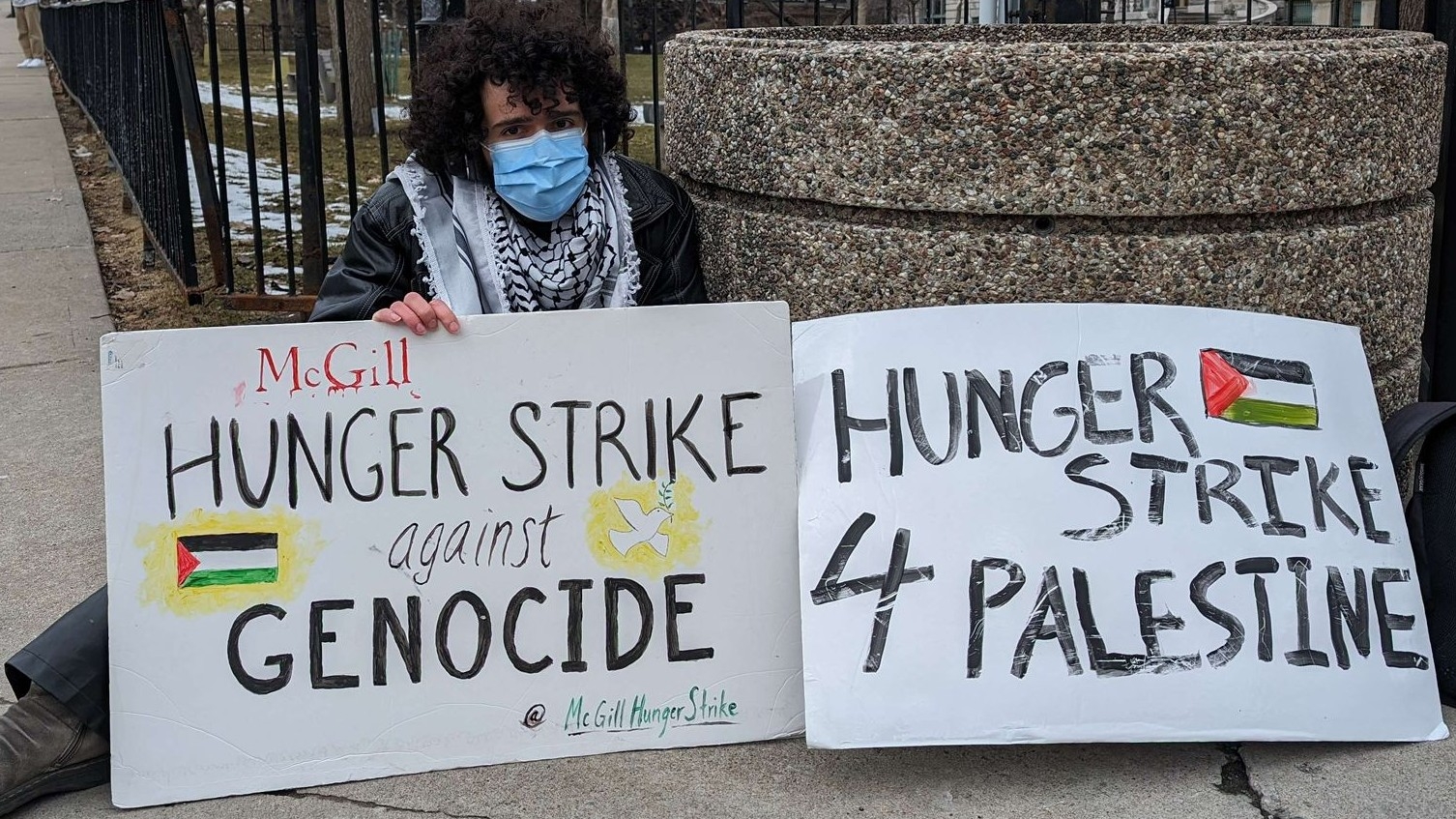
A Canadian student from McGill University who has been an indefinite hunger strike for the past 34 days was admitted to hospital after she fainted on Saturday, student organisers have told Middle East Eye.
Rania Amine, an undergraduate student at McGill, who began an indefinite hunger strike on 19 February, is understood to be stable and under observation. MEE was scheduled to speak with Amine on Saturday before she was admitted to hospital.
Organisers told MEE that Amine went to the hospital for IV fluids.
Upon receiving the IV fluids, Amine fainted and doctors advised she be hospitalised. The students declined to disclose the name of the hospital for Amine's safety.
Amine is one of two students currently on an indefinite hunger strike to demand that the university both divest from defence companies directly or indirectly supporting the Israeli military as well as end its associations with four Israeli universities.
New MEE newsletter: Jerusalem Dispatch
Sign up to get the latest insights and analysis on Israel-Palestine, alongside Turkey Unpacked and other MEE newsletters
Around 15 other students have been engaged in a hunger strike on a rotational basis since 19 February.
According to the organisers of the hunger strike, McGill currently has around $20m invested in several defence companies, including Safran, a French air and defence company and Lockheed Martin, an American company that has sold fighter jets to Israel.
More than 32,000 Palestinians have been killed by Israel in Gaza and hundreds of thousands are facing famine since 7 October, when Hamas-led fighters launched an attack from the besieged territory.
The McGill students' hunger strike movement comes on the heels of a referendum voted on in November 2023, in which a majority of the student body voted for the university to condemn Israel’s siege on Gaza, divest from companies that support the state of Israel and cut ties with Israeli universities.
One students, who only wanted to be identified as "Chadi", has been on an indefinite hunger strike for the past 22 days. Chadi told MEE that he began the strike because he did not want to participate in the Israeli occupation or the normalisation of ties with an apartheid state.
"We are talking about $20m in investments into companies that are either directly weapons manufacturers - I think this amount is like $7m - and the rest are companies that fund the occupation, and the current genocide and apartheid in Palestine," Chadi, who offered his first name, said.
"This is something that people aren't really aware of - unless you are in McGill - and we are trying to talk about it and let people know about it," he added.
'Classes littered with Zionism'
Chadi said he was shocked to find out that the university has such deep ties with institutions of higher education in Israel and "Zionist narratives".
"McGill is very, very bad. Classes are littered with Zionism," he said.
Organisers of the group behind the hunger strike at McGill told MEE that the university has the ability to divest from companies it sees as problematic or unethical.
The students cited the divestment from apartheid South Africa in 1985. At the time, it was the first Canadian university to make the step after prolonged pressure from activists.
Students also noted the university's recent decision to divest from fossil fuel companies.
“McGill is committed to fighting the climate crisis not only in its teaching and research, but in everything we do,” Deep Saini, the university's president and vice chancellor, said at the time.
“These new commitments provide yet another opportunity for us to demonstrate our values, and work toward a greener Quebec and a greener world.
But students said they were not taking action on Israel because either they didn't see this issue as urgent or they didn't care about Palestinian life.
"There is no excuse now for not divesting from Israeli funds," the organiser said.
On Friday, McGill issued a statement saying it was concerned about the well-being of the students taking part in the strike.
“We have clearly communicated the procedures available for expressing concern about the university’s investment holdings, or for advocating policy changes.
"These students have chosen a different approach; our hope is that they will understand that university policies will not be determined in this way before their well-being is affected. We urge them to make choices that prioritize their health," the statement added.
McGill university did not immediately respond to MEE's request for comment.
Middle East Eye delivers independent and unrivalled coverage and analysis of the Middle East, North Africa and beyond. To learn more about republishing this content and the associated fees, please fill out this form. More about MEE can be found here.


